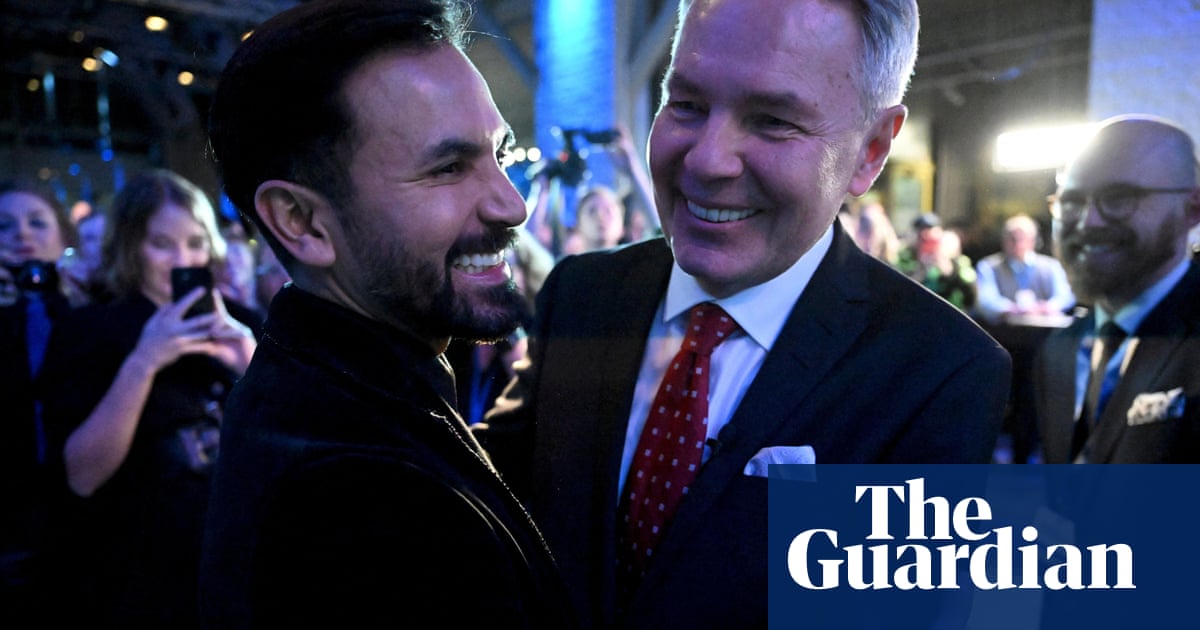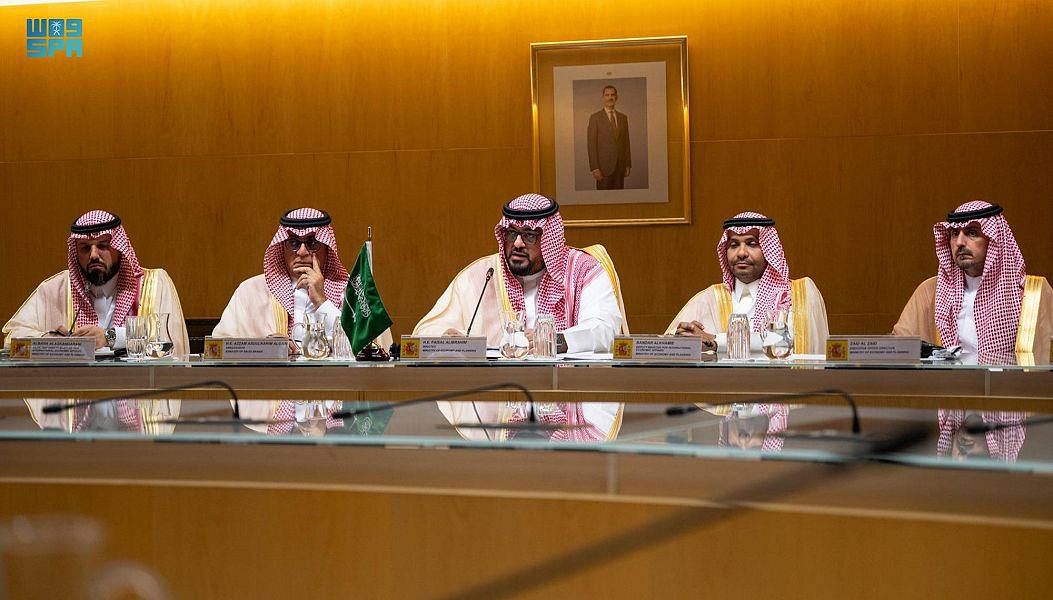
The Finnish presidential candidate Pekka Haavisto has questioned why his sexuality has come under such strong focus in the final days of campaigning before Sunday’s election as polls narrow with his rival, Alexander Stubb.
The 65-year-old former foreign minister, who if he wins would become Finland’s first Green and first gay president, said he had been surprised by the way his sexuality had become an issue of public interest in the second and final round.
International security and defence are a high priority in the Nordic country after it joined Nato last year as it borders Russia. The Finnish president is head of state, commander-in-chief of the army and responsible for foreign policy in cooperation with the government.
In 2012, when Haavisto ran for president the first time, voters were keen to discuss his sexual identity with him, but he had not initially found it to be a central topic on the campaign trail this time. However, since coming second out of nine candidates in the first round to make it through to the final round of voting against Stubb, he said that journalists, particularly those from the national broadcaster, Yle, had been “triggering” discussion around it.
From his home in Helsinki, where he lives with his partner, Antonio Flores, he said: “Not so much in the campaign debates but actually by some journalists in Yle, the national broadcasting company, they have been triggering it in a surprisingly strong way in the second round of the voting.
“I think many commentators are also a little bit surprised that I am a third-time presidential candidate, and in the first round it was not a topic, so how come it comes in the second round?”
Haavisto, who is running as an independent, added: “For me it surprises that it’s a topic during the second round in these elections, and also that when going around the country and meeting voters and having discussions it has not been coming directly to me like it maybe was discussed in 2012. Even that time it wasn’t so [much of an] issue so it looks a little like an artificial topic now in the second round.”
That some journalists “have been so active on this topic raises questions”, he said.
His comments come after a University of Helsinki poll found that a third of voters would not vote for Haavisto because he is gay.
The latest poll by Yle found that Haavisto is catching up with Stubb, a former prime minister and a member of the ruling centre-right National Coalition party but still trails him 46-54%.
Jouko Jokinen, the editor-in-chief of Yle, said: “In the second round candidates are trying to win votes from those groups [or] people who have not voted for them in the first round. We asked our subject-matter expert if Haavisto’s sexual orientation – which is not a new thing to Finns – could still be a dividing matter for some of the voters.
“Our journalistically relevant question was considered to be a taboo and not to be asked at all. Even though a recent study shows that a third of voters believe that Haavisto’s partner is a reason not to vote for him. It is a valid question since there still are Finns with prejudices. It’s a phenomenon that exists and we need to be bold enough to ask the question.”
In the first round of voting last month, the rivals knocked out the rightwing populist candidate, Jussi Halla-aho, of the far-right Finns party, to make it through to the runoff. Stubb, 55, won 27.2% of the vote, narrowly followed by Haavisto with 25.8%.
Another subject that has been a central topic of debate in the final days has been nuclear weapons, with Stubb and Haavisto disagreeing on what Finland’s approach to them should be. While Haavisto is against storing nuclear weapons – it is against the law to bring them into the country – Stubb has said the law should be changed.
While both candidates have broad-ranging support, Stubb’s is stronger among pensioners and Haavisto’s supporters are generally younger, which will make turnout especially important for him.
Haavisto said: “It will be a tough battle.”
Before polls open on Sunday, both candidates will continue on the campaign trail. Haavisto, who planned to be in eastern and central Finland, said he had seen strong support from female voters, who have been particularly active in pre-voting, and held a big concert on Monday to encourage young people to vote.
If he wins, his first priority would be to talk about the climate crisis with other heads of state, he said, with the aim of forming an informal coalition to help pressure the UN and other bodies to take more urgent action. “When introducing myself to colleagues I would like to use the opportunity to raise some of the issues that are extremely important for Finland, and preventing climate change is one of those.”












